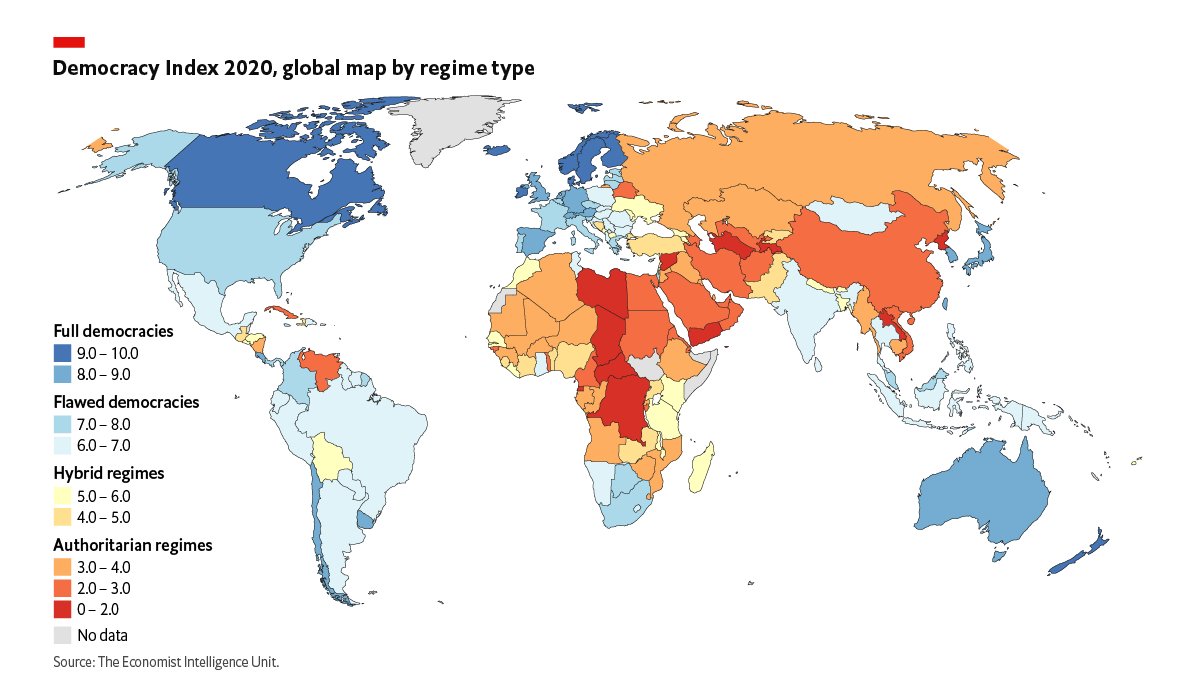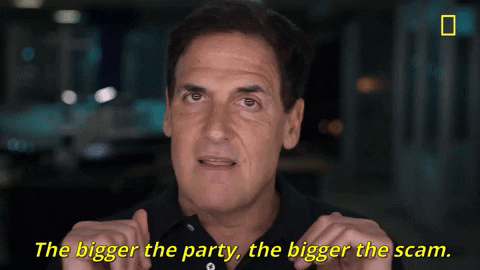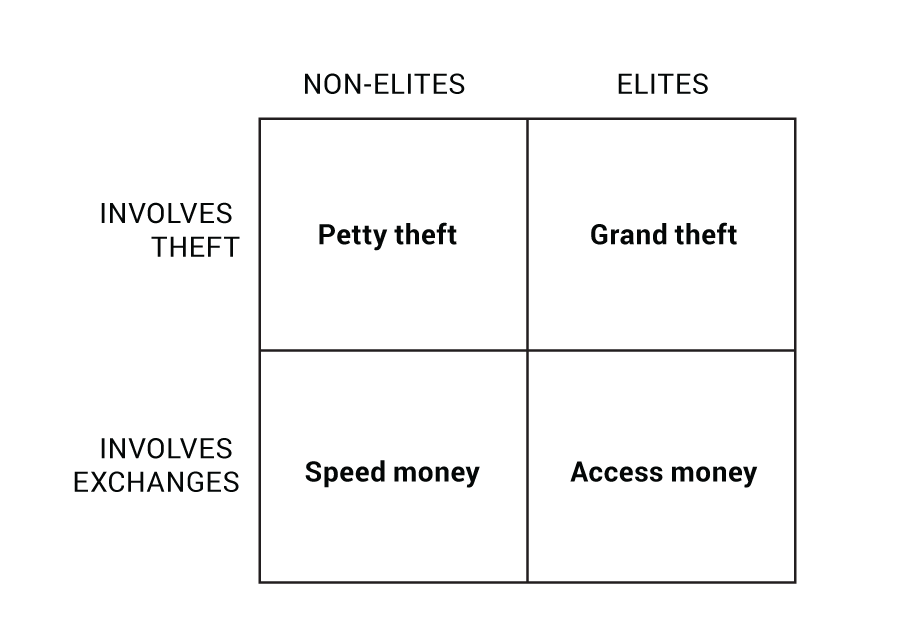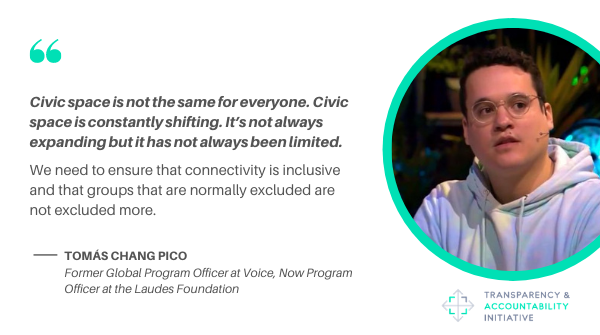Highlights
- Full, flawed, hybrid – where are you?
- Bigger may not mean better
- Wealth conundrums
- Tech to the rescue?
- Futures reimagined
- Size matters
- TAI Spotlight: Preparing for a crisis: A case for meaningful open government in Liberia and beyond
Full, flawed, hybrid – where are you?

Last week we covered the latest Corruption Perceptions Index and Trust Barometer. This week, we kick off with the Economist Democracy Index. The results aren’t pretty – just 8.4% of the world’s population live in a “full democracy” while more than a third live under authoritarian rule. Norway tops the list.
Uganda is ranked 98 in the Index – categorized as a “hybrid regime,” and the recent election will have done little to bolster credentials. So, perhaps no surprise again that President Museveni has ordered the suspension of an European-backed fund for governance. The group, which supports rights watchdogs, anti-corruption agencies, and even journalists doing investigative work, is now labeled a tool of foreign influence.
Perhaps no surprise that the U.S. now falls in the “flawed democracy” ranks. Fuel for Ted Piccone to urge the Biden Administration to make headway on the “essential work of accountability” at home before convening any Democracy Summit with other countries. Time for steps to restore “rule of law principles and practices.”
Of course, reputation rebuilding extends to U.S. foreign aid. Charles Kenny offers four ideas for Samantha Power as she takes over at USAID, and one, in particular, caught our eye: “Providing support to civil society to strike down laws that enforce discrimination on the grounds of gender, sexual orientation or religious belief worldwide.”
Meanwhile, approximately 100 days after the #EndSARS protest in Nigeria, investigative reporter Fisayo Soyombo uncovers details of the massacre at Lekki toll gate in a three-part investigative report despite cover-up attempts. Lynsey Chutel asks if there will be accountability or more impunity for the police involved. All signs point to the latter.
Bigger may not mean better

U.S. Senators Mark Warner and Mike Rounds explain how the recent U.S. ban on anonymous shell companies “will take a hammer-blow” to Beijing’s purported use of shell structures to channel illicit funds and enable its influence. Yet, changes within China may prove more significant. Chinese authorities’ domestic anti-corruption campaign is well documented (including its politicization), but toughness may be extending to environmental regulation. A high-level environmental inspection committee has slammed the domestic energy watchdog for neglecting inefficiency, environmental failures, and ideological wavering. Michael Davidson gives context to the report, noting the open rebuke is the surest signal that China’s plan will reduce coal mining capacity through 2025.
No shortage of Chinese investment in Southern Africa, but how did the mining sector do in a tough 2020? Southern Africa Resource Watch are here to tell you. One bright spot, more firms are taking up ESG frameworks, including a Mining Local Procurement Reporting Mechanism. One firm reported a 72% increase in procurement within South Africa.
Some of the world’s biggest mining deals continue to cause problems. Mining magnate Benny Steinmetz is fighting to stay out of jail in Israel for corruption in the Simandou deal in Guinea. Meanwhile, the Mongolian government is hoping Rio Tinto will agree to cancel the agreement to expand the giant Oyu Tolgoi copper mine given cost overruns and feared failure to secure local economic benefits.
Turning to oil, Nigeria’s Economic and Financial Crimes Commission (EFCC) announced an arrest warrant for the managing director of ExxonMobil Nigeria for failure to appear before investigators. The EFCC is investigating potential procurement fraud worth over $213 million in a pipeline project.
Wealth conundrums
Returning to South Africa. A new study shows that introduction of a wealth tax could raise $10.7 billion. When the top 1% own 55% of all personal wealth in the country, one can imagine the pressures builds for such measures.
No mention of wealth taxes or equity in Mark Plant and W. Gyude Moore’s recap of African tax experts discussing mobilizing revenue amid COVID. However, encouraging to see recognition of the need to focus reform on the politics of tax and taking on entrenched interests.
A boost to global momentum for tax transparency this week as Norway’s wealth fund confirmed it had ditched investments over company failures to meet tax transparency demands. Can other pension funds follow? A pleasant surprise, too, that several Norwegian lawmakers nominated the Global Alliance for Tax Justice and the International Consortium of Investigative Journalists for a Nobel Peace Prize for their work in exposing and tackling illicit financial flows.
Tech to the rescue?
As governments and civil society continue to push for more transparency in the purchase of COVID-related resources, Taryn Davis points to data and process gaps in public procurement and open contracting in Kenya and other countries.
Per Aarvik highlights how online coordination is helping African civil society – in Gambia, Nigeria, and South Africa – to improve how COVID relief funds are spent, while the Westminster Foundation published results from tracking the first six months of COVID spend in Albania. (See more on tracking government COVID funds under TAI Spotlight.)
The flood of public spending during the pandemic is also prompting more to turn to technology. A new World Bank report lays out “GovTech” solutions for helping detect fraud in public administration.
Heather Marquette and Caryn Peiffer delve into the similarities between study of corruption and organized crime, but lament that research and policy on each have evolved largely in parallel, with few attempts to look across the disciplines to reflect on what they might learn from one another.
Essential Watching: Unbundling Corruption
 Yeun Yeun Ang, Assistant Professor of Political Science at the University of Michigan, on why we should unbundle corruption and how to do it.
Yeun Yeun Ang, Assistant Professor of Political Science at the University of Michigan, on why we should unbundle corruption and how to do it.
Futures reimagined
Looking to a post-pandemic world, Debapriya Battacharya and Sarah Sabin Khan note important gaps missing in the discourse around scenarios, including a notable lack of Southern voices. This reminds us of a conversation this past week, including reference to efforts to build “futures literacy” – check out Capacity to Decolonize.
Meanwhile, looking back at 2020, Enrique Mendizabal encourages us all to find the “local” connection in our work to boost our capacity to work globally.
Richard Eastmond urges room for local nuances and interpretation while the merits (and limits) of mandatory diversity training in international civil society organizations.
Size matters

Critiques of big philanthropy continue to bubble. A new paper by four economists describes how U.S. companies use corporate philanthropy as a tool for political lobbying, while Chiara Cordelli challenges the lumping together of philanthropy with civil society – asking is philanthropy civil?
What to do? Phil Buchanan asks donors to listen more effectively, while Lori Bartczak urges large foundations to look to small foundations for guidance as they tend to be much faster at “moving from talk to action when it comes to adopting more equitable practices and communicating a point of view about racial justice. On the other hand, Jason Sabo and Andy Carroll believe small foundations can do more to embrace advocacy and public policy engagement on causes they care about.
What can a complete package look like? Check out this series of essays that discusses best practices for effective and inclusive philanthropy.
What about collective foundation efforts to boost impact? Geoff Mulgan lays down five ways foundations could pool resources more effectively for social change.
Other stories you might like:
- Global Integrity annual report: What’s in a name?
- Is the Global Partnership for Education redundant?
- An overview of the impact of proposed cuts to U.K. aid
- Mozilla Foundation reflects on 2020 internet health report
- How two white leaders of big foundations are tackling racial equity
TPA Full Disclosure: Tomás Chang Pico on Grantmaking: “Let communities take the lead”

After a failed attempt to become a strong corporate lawyer, Tomás Chang Pico firmly decided to make a career out of his true passion: building a better world free from poverty, inequality, and all forms of discrimination. Now, he works as a Programme Officer for the Built Environment Programme at the Laudes Foundation. Prior to taking on his new role, he served as the portfolio manager of the Voice-funded global projects to strengthen the influencing capacity of civil society organizations and representatives of so-far marginalized groups. We spoke with Tomás on the lessons from the Voice-backed project, his experience as a trained lawyer-turn program manager, and how funders and program managers can keep ensuring inclusive grantmaking.
TAI Spotlight: Preparing for a crisis: A case for meaningful open government in Liberia and beyond
Preparing for a Crisis: A Case for Meaningful Open Government in Liberia and Beyond | Transparency and Accountability Initiative
Learning Managers at Accountability Lab Liberia, Nyema Richards and Sanjeeta Pant, share some of the challenges and lessons learnt from tracking $155m of international aid channeled through different government agencies in Liberia (only 27% of the targeted funds could be traced). They reflect on the larger problems faced when civil society tries to make governments accountable.
Five tools for reducing corruption during COVID-19 | Chandler Foundation
Director of Social Impact, Leslie Lang Tsai, and IBP’s Warren Krafchik highlights five evidence-based tools that can be used to help governments increase trust, strengthen their management of public funds, and improve their response to the current crisis.
Program Directors reflect on creating a more equitable future | MacArthur Foundation
The Foundation’s Program Directors reflect on their programs, grantees, and partners’ impact as they meet the moment and work to create a more equitable future.
A Human Rights Guide for Researching Racial and Religious Discrimination in Counterterrorism in Europe | Open Society Foundations
This paper is the result of a two-year collaboration between Amnesty International and the Open Society Initiative for Europe which provides activists and practitioners with tools to fight against discrimination and a way to redress the violations of survivors’ human rights.
Funding Performance: How Great Donors Invest in Grantee Success | Ford Foundation and Hewlett Foundation
Ford Foundation Executive Vice President for Programs, Hilary Pennington, and Program Director of U.S. Democracy at the William and Flora Hewlett Foundation, Daniel Stid, join six other foundation heads to speak truth to power about the ways funders frequently undermine their own grantees and provide important ways funders can better support grantees to positively affect the world of tomorrow.
New Global Coalition launched to address impacts of climate change | Foreign Commonwealth and Development Office (FCDO)
Prime Minister Boris Johnson announced the launch of the Adaptation Action Coalition, a new international coalition will work to turn international commitments on adaptation & resilience into on-the-ground support for vulnerable communities.
Job Listings
- Consultant – Asset Management – February 9, 2021
- Crime Prevention and Criminal Justice Officer (Asset Recovery) – February 26, 2021
- Policy and Projects Manager at ONE – Ongoing
- Policy consultant at Accountability Counsel – Ongoing
- Organized Crime and Grand Corruption Analyst, C4AD – Ongoing
- Senior Policy Advisor for Civic Space at Oxfam America – Ongoing
- Job postings at Hewlett Foundation – Ongoing
- Job postings at MacArthur Foundation – Ongoing
- Job postings at Open Society Foundations – Ongoing
- Job postings at Luminate – Ongoing
- Job postings at Ford Foundation – Ongoing
Calls/Opportunities
- Soros Justice Fellowship –February 17, 2021
- Call for submissions to SSIR Series: Social change in an era of extreme polarization – Last Thursday of every month until early 2021
- West Africa Civil Society Institute (WACSI) call for papers and articles – Open year-round
- USAID’s Development Innovation Ventures (DIV) grant funding – Ongoing
- BetterTogether Challenge for innovators – Ongoing
- Call for research proposals Tax and civil society – No Deadline
- Free Digital Security Training – Ongoing
- Open Road Alliance Charitable Grant and Loan to organizations responding directly to COVID-19 – Ongoing
- Pulitzer Center Coronavirus news collaboration challenge – Applications will be reviewed on a first-come, rolling basis
- Call for proposals: Informality, tax, and the state – Proposals accepted on a rolling basis
Calendar
- CGHR Practitioner Series: Lysa John [CIVICUS] – February 11, 2021
- Mining Data in Action: Building Trust and Transparency – February 15, 2021
- Democracy, civil society, and digital technology – February 17-18, 2021
- 2021 Data on Purpose conference – February 17-18, 2021
- Data on Purpose: Democracy, Civil Society, and Technology – February 17-18, 2021
- World Bank Civil Society Policy Forum (Virtual) – March 22-April 11, 2021
- Open Gov Week (Virtual) – May 17-21, 2021


